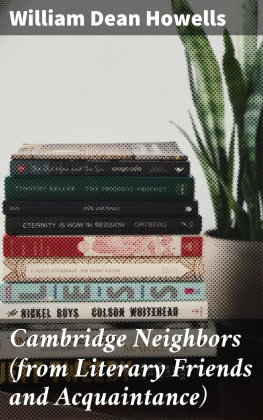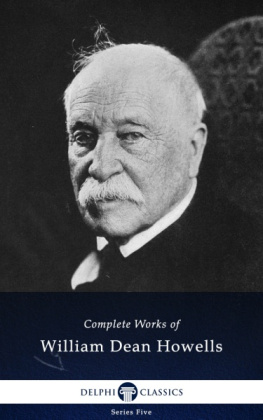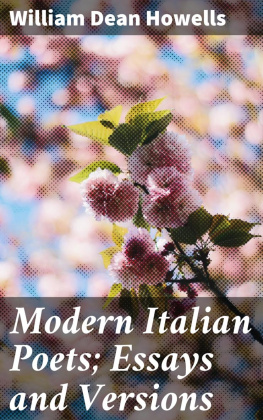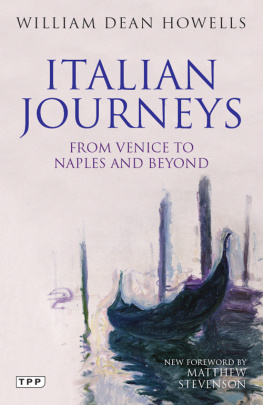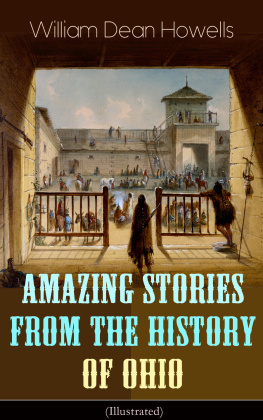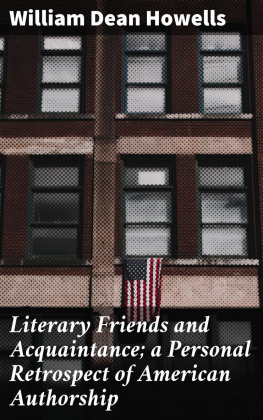I.
Table of Contents
One of the first and truest of our Cambridge friends was that exquisiteintelligence, who, in a world where so many people are grotesquelymiscalled, was most fitly named; for no man ever kept here more perfectlyand purely the heart of such as the kingdom of heaven is of than FrancisJ. Child. He was then in his prime, and I like to recall the outwardimage which expressed the inner man as happily as his name. He was oflow stature and of an inclination which never became stoutness; but whatyou most saw when you saw him was his face of consummate refinement: veryregular, with eyes always glassed by gold-rimmed spectacles, a straight,short, most sensitive nose, and a beautiful mouth with the sweetest smilemouth ever wore, and that was as wise and shrewd as it was sweet. In atime when every other man was more or less bearded he was clean shaven,and of a delightful freshness of coloring which his thick sunny hair,clustering upon his head in close rings, admirably set off. I believe henever became gray, and the last time I saw him, though he was broken thenwith years and pain, his face had still the brightness of hisinextinguishable youth.
It is well known how great was Professor Child's scholarship in thebranches of his Harvard work; and how especially, how uniquely, effectiveit was in the study of English and Scottish balladry to which he gave somany years of his life. He was a poet in his nature, and he wrought withpassion as well as knowledge in the achievement of as monumental a taskas any American has performed. But he might have been indefinitely lessthan he was in any intellectual wise, and yet been precious to those whoknew him for the gentleness and the goodness which in him were protectedfrom misconception by a final dignity as delicate and as inviolable asthat of Longfellow himself.
We were still much less than a year from our life in Venice, when he cameto see us in Cambridge, and in the Italian interest which then commendedus to so many fine spirits among our neighbors we found ourselves at thebeginning of a life-long friendship with him. I was known to him only bymy letters from Venice, which afterwards became Venetian Life, and by abit of devotional verse which he had asked to include in a collection hewas making, but he immediately gave us the freedom of his heart, whichafter wards was never withdrawn. In due time he imagined a home-school,to which our little one was asked, and she had her first lessons with hisown daughter under his roof. These things drew us closer together, andhe was willing to be still nearer to me in any time of trouble. At onesuch time when the shadow which must some time darken every door, hoveredat ours, he had the strength to make me face it and try to realize, whileit was still there, that it was not cruel and not evil. It passed, forthat time, but the sense of his help remained; and in my own case I cantestify of the potent tenderness which all who knew him must have knownin him. But in bearing my witness I feel accused, almost as if he werepresent; by his fastidious reluctance from any recognition of hishelpfulness. When this came in the form of gratitude taking credit toitself in a pose which reflected honor upon him as the architect ofgreatness, he was delightfully impatient of it, and he was most amusinglydramatic in reproducing the consciousness of certain ineffectual alumniwho used to overwhelm him at Commencement solemnities with some suchpompous acknowledgment as, "Professor Child, all that I have become, sir,I owe to your influence in my college career." He did, with deliciousmockery, the old-fashioned intellectual poseurs among the students, whoused to walk the groves of Harvard with bent head, and the left armcrossing the back, while the other lodged its hand in the breast of thehigh buttoned frock-coat; and I could fancy that his classes in collegedid not form the sunniest exposure for young folly and vanity. I knowthat he was intolerant of any manner of insincerity, and no flatterycould take him off his guard. I have seen him meet this with a cuttingphrase of rejection, and no man was more apt at snubbing the patronagethat offers itself at times to all men. But mostly he wished to dopeople pleasure, and he seemed always to be studying how to do it; as forneed, I am sure that worthy and unworthy want had alike the way to hisheart.
Children were always his friends, and they repaid with adoration theaffection which he divided with them and with his flowers. I recall himin no moments so characteristic as those he spent in making the littleones laugh out of their hearts at his drolling, some festive evening inhis house, and those he gave to sharing with you his joy in hisgardening. This, I believe, began with violets, and it went on to roses,which he grew in a splendor and profusion impossible to any but a truelover with a genuine gift for them. Like Lowell, he spent his summers inCambridge, and in the afternoon, you could find him digging or pruningamong his roses with an ardor which few caprices of the weather couldinterrupt. He would lift himself from their ranks, which he scarcelyovertopped, as you came up the footway to his door, and peer purblindlyacross at you. If he knew you at once, he traversed the nodding andswaying bushes, to give you the hand free of the trowel or knife; or ifyou got indoors unseen by him he would come in holding towards you someexquisite blossom that weighed down the tip of its long stem with asuccession of hospitable obeisances.
He graced with unaffected poetry a life of as hard study, of as hardwork, and as varied achievement as any I have known or read of; and heplayed with gifts and acquirements such as in no great measure have madereputations. He had a rare and lovely humor which could amuse itselfboth in English and Italian with such an airy burletta as "Il Pesceballo"(he wrote it in Metastasian Italian, and Lowell put it in librettoEnglish); he had a critical sense as sound as it was subtle in allliterature; and whatever he wrote he imbued with the charm of a stylefinely personal to himself. His learning in the line of his Harvardteaching included an early English scholarship unrivalled in his time,and his researches in ballad literature left no corner of it untouched. Ifancy this part of his study was peculiarly pleasant to him; for he lovedsimple and natural things, and the beauty which he found nearest life.At least he scorned the pedantic affectations of literary superiority;and he used to quote with joyous laughter the swelling exclamation of anItalian critic who proposed to leave the summits of polite learning for amoment, with the cry, "Scendiamo fra il popolo!" (Let us go down amongthe people.)
II.
Table of Contents
Of course it was only so hard worked a man who could take thought andtrouble for another. He once took thought for me at a time when it wasvery important to me, and when he took the trouble to secure for me anengagement to deliver that course of Lowell lectures in Boston, which Ihave said Lowell had the courage to go in town to hear. I do notremember whether Professor Child was equal to so much, but he would havebeen if it were necessary; and I rather rejoice now in the belief that hedid not seek quite that martyrdom.
He had done more than enough for me, but he had done only what he wasalways willing to do for others. In the form of a favor to himself hebrought into my fife the great happiness of intimately knowing HjalmarHjorth Boyesen, whom he had found one summer day among the shelves in theHarvard library, and found to be a poet and an intending novelist. I donot remember now just how this fact imparted itself to the professor, butliterature is of easily cultivated confidence in youth, and possibly therevelation was spontaneous. At any rate, as a susceptible young editor,I was asked to meet my potential contributor at the professor's twoo'clock dinner, and when we came to coffee in the study, Boyesen tookfrom the pocket nearest his heart a chapter of 'Gunnar', and read it tous.


